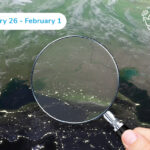On August 20, 2020, Alexei Navalny, known by many as an anti-corruption activist, became violently ill during a flight from Tomsk to Moscow. He was taken to a hospital in Omsk after an emergency landing, put into a coma, and evacuated to a hospital in Berlin, Germany for treatment. Several laboratories, including facilities in Sweden and France, confirmed that Navalny had been poisoned with a Novichok nerve agent.
After spending several months recovering in Germany, Navalny launched an Internet-expose of his alleged poisoners by calling one of the FSB operatives. Soon after, Navalny returned to Moscow where he was detained upon arrival at the Sheremetyevo International Airport. Navalny was charged in absentia for having broken the terms of a prior suspended prison sentence, which he describes as politically motivated.
Six days after Navalny’s most recent arrests, thousands of protesters across 11 time zones took to the street to show their support. State media warned of heavy police presence and advised protesters to stay away. Protests were organized in the Far East, across Siberia, and in Russia’s most populous cities, Moscow and St. Petersburg. By the end of the day on January 23, more than 3,000 arrests were made in more than 100 cities across Russia, according to OVD-Info activist group, making the demonstrations the largest public display of opposition to authorities in several years.
Navalny began his political career by joining the liberal opposition party Yabloko. The party dismissed him for his participation in the anti-Putin Russian March in 2007 and for controversial anti-immigration views. Navalny also unexpectedly secured 27 percent of the vote in the 2013 Moscow mayor elections against a pro-Kremlin candidate equipt with the backing of state media. He founded the Anti-Corruption Foundation and launched several journalistic investigations on the Russian government. The opposition leader is largely present online as he is deplatformed on all traditional media outlets.
While Navalny is widely referred to as an opposition leader in Russia and hailed by the West for his dedication to anti-corruption efforts against Kremlin authorities, his stance does not equate to a pro-western outlook.
Neighboring Ukrainians are hesitant to take the streets in defense of Navalny. The opposition leader often undermined cultural differences between Russians and Ukrainians, referring to two nations as “one people.” Following Putin’s annexation of Crimea, in an interview where he was asked what he would do as President, Navalny announced that he would not return the peninsula to Ukraine. When the Ukrainian Orthodox Church separated from the Russian Orthodox Church, Navalny criticized Putin for not preserving the 300-year-old Russian history, rather than praising Ukraine for exercising its national rights. Beyond Ukraine, Navalny has expressed support for the breakaway states of Abkhazia and South Ossetia after the 2008 War.
The Institute of Mass Media in Ukraine (IMI) also found that many large Ukrainian outlets such as 112.ua, 5.ua, and Intefax refrained from reporting on Navalny’s poisoning investigation. IMI alleges that Russia-backed channels in Ukraine were prohibited from airing Putin’s involvement in the attempted murder. IMI interprets the silence on independent and nationalist Ukrainian channels regarding Navalny as news about “just another Kremlin opponent.” In other words, Ukrainians are either too accustomed to bad news about Russian opposition leaders or Navalny’s figure is not as significant to Ukraine’s struggle against Russian interference and occupation of Crimea.
Some Ukrainian officials warn that Navalny’s poisoning and imprisonment can distract the international community from his backing of Russian imperialist approach in Eastern Europe and the Caucasus. However, the Ukrainian Foreign Minister Dmytro Kuleba encouraged the international community to take a harsh stance against Putin’s regimes.
On January 26th, the U.S. President Joe Biden discussed Navalny’s poisoning and subsequent arrest in his first phone call with the Kremlin. Although no details of the conversation are available to the public, White House press secretary Jen Psaki reaffirmed Biden’s interest in holding a firm stance against Russia.
Similarly, the EU High Representative for Foreign Affairs and Security Policy Josep Borrell will meet with Russian Foreign Minister Sergey Lavrov to discuss the Navalny incident of February 4-6. On top of Navalny’s detainment, Borrell seeks to discuss Russia’s actions against Ukraine. Navalny’s case, alongside the change in the American administration, could bring further exposure to the issue of Ukrainian national sovereignty, despite Ukraine’s silence on the politics of Navalny’s detainment.

